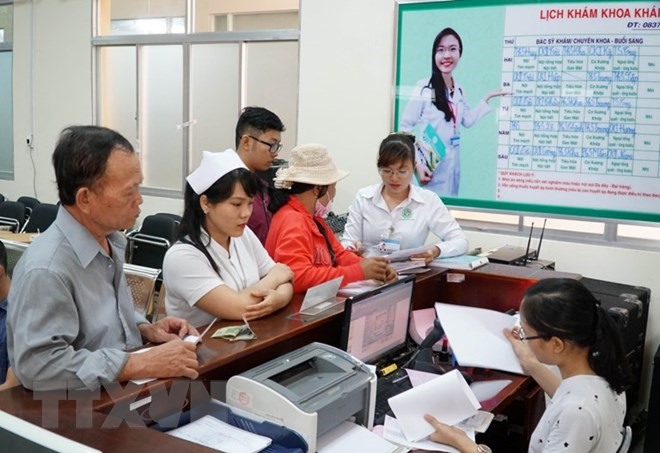 Society
Society

Financial autonomy has improved the quality of many public hospitals in HCM City, but some of them still do not have sufficient funds to upgrade facilities.
 |
| Patients receive treatment at a hospital in HCM City. — VNA/VNS Photo Phương Vy |
HCM CITY —Financial autonomy has improved the quality of many public hospitals in HCM City, but some of them still do not have sufficient funds to upgrade facilities.
Only three of 54 public hospitals in the city now receive money from the city, after the autonomy policy took effect last October, according to the city’s Department of Health.
Thủ Đức District Hospital, one of the first in the city to carry out financial autonomy, has bought advanced machines, hired experts and sent doctors abroad for training, and now has many departments with the same quality as city or central-level hospitals.
More than 6,000 patients visit the hospital every day, according to Nguyễn Minh Quân, the head of the hospital.
Dr Nguyễn Đức Minh, head of the HCM City Hospital of Odonto-Stomatology, said the hospital has advanced machines for its high-tech departments thanks to financial autonomy.
Last year, the hospital attracted a total 92,795 patients, up from 87,574 patients in 2016. Its revenue was VNĐ227 billion (approximately US$10 million) last year, compared to VNĐ173 billion in 2016.
At a meeting between the city’s People’s Council and hospitals held this month, Dr Nhan Tô Tài, head of District 12 Hospital, said the hospital faced problems related to autonomy.
With 1,000 to 2,000 patients a day, the hospital does not have sufficient funds or facilities for its operation, according to Tài.
Dr Võ Đức Chiến, director of Nguyễn Tri Phương Hospital, said its finances were limited and the new equipment was needed.
"Specialised hospitals find it easier to implement financial autonomy," Chiến said.
Dr Phan Văn Báu, head of People’s Hospital 115, said the hospital spent money on advanced machines and techniques, but could not charge higher fees because the current fees were already high for severely ill patients.
Representatives of the city’s outlying district-level hospitals also complain that they face problems in autonomy because of the low number of patients. They are concerned that staff including doctors may leave.
Cần Giờ District Hospital has received assistance from the Department of Health, which sent doctors from central and city level hospitals to train its doctors. But the hospital has only 18 doctors, the lowest number of district-level hospitals in the city.
A hospital representative said it was difficult to recruit doctors and suggested that the city People’s Committee devise preferential policies to help attract doctors at certain hospitals. — VNS




